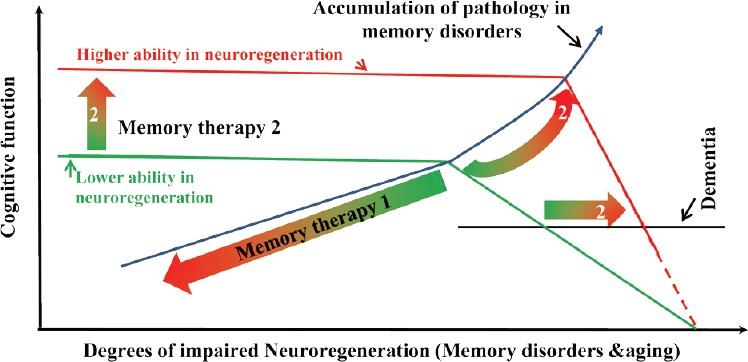Figure 1.

Roles of neuroregeneration in memory pharmacology.
Ability in neuroregeneration represents one of the core features of the cognitive function, which is impaired by damaging neuropathology in memory disorders or reduced in aging. Memory therapy 1 is the ‘conventional’ therapeutic strategy, which antagonizes the neuropathology of memory disorders and of memory decline in aging. Memory pharmacology 2 enhances the ability in neuroregeneration, so that cognitive function is maintained to a much greater amount of pathology before the function starts to drop (Memory therapy 2) at a much later time (2). The clinical diagnosis of dementia would also occur later (2), at greater neuropathology, but probably at greater rate of progression.
